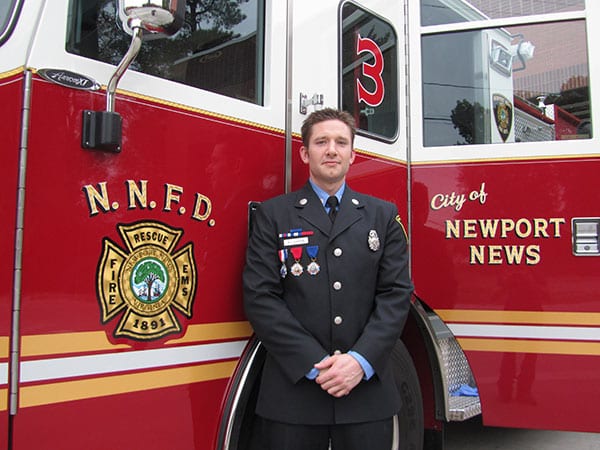January 30, 2014
SCE’s acclaimed Fire Science Program earns national accreditation

By Vicki-Ann Downing
The Fire Science Program of the School of Continuing Education, a longtime educational training ground for area firefighters, has received national accreditation from the Fire and Emergency Services Higher Education Network.
FESHE, part of the U.S. Fire Administration National Fire Academy, standardizes undergraduate education through a model curriculum.
Associate Dean Madeleine A. Metzler said accreditation means that SCE course offerings are now aligned with a national model, making it easier for students to transfer from a community college into PC’s program to complete a bachelor’s degree in fire science.
PC is the only college in Rhode Island and one of the few colleges in New England to offer a bachelor’s degree in the subject. The SCE program was developed in 1973 through a partnership with the Providence Fire Department.
Most students who study in the PC program are firefighters seeking professional development and career advancement, Metzler said.
Brian Gleason ’08SCE came to PC after high school to earn a bachelor’s degree in fire science through SCE. He now is a fire lieutenant in New Kent County, Va., and a firefighter, paramedic, and fire inspector in the city of Newport News.
“What made the SCE program unique was that so many people in the program already had been on the job in Providence, Boston, and so forth, and you learned from their 20 to 30 years of experience,” said Gleason. “In a lot of other programs I investigated, the guys in class were all young like me, with maybe five years of volunteer service.”
Gleason also appreciated being taught by SCE instructor Curt Varone ’78 & ’82SCE, a lawyer who has written books used in fire science programs across the country.
Mark Pare ’87SCE retired as an assistant chief with the Providence Fire Department and worked as fire chief in Wrentham, Mass. He is now director of the Rhode Island Fire Academy, having worked for the Massachusetts academy as well.
PC’s Fire Science Program “isn’t a hands-on class in terms of raising ladders and filling hoses,” said Pare. “You learn the theories — the chemistry of fire, how a fire burns, and how you put it out. You learn the basics of building construction, how a fire can hide, and where it can travel.
“Not only do firefighters learn more about their primary profession, but they learn about all the other subjects you take when you go to college — sociology, psychology, math, and sciences,” said Pare. “It has a positive effect. It raises the value and professionalism of the profession.”





